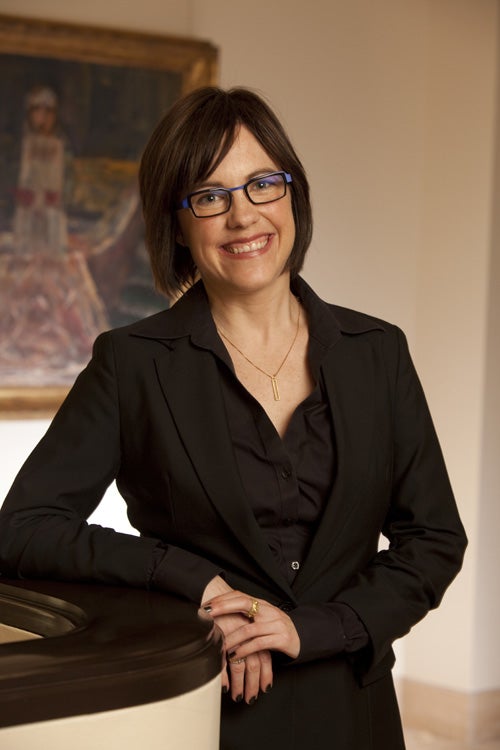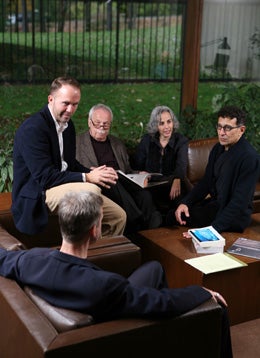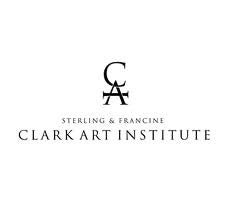Kate Mondloch, associate professor in the Department of the History of Art and Architecture at UO, is co-convener of the Clark Colloquium: “Art History and Materiality” March 15-16 at the Sterling and Francine Clark Art Institute in Williamstown, Massachusetts.
 “Art History and Materiality” endeavors to reveal the material underpinnings of art historical thought, both in its past traditions and its current practices. The motivation for the colloquium is twofold: First, to demonstrate the fundamental relevance of art history to the material turn in the wider humanities, especially its attention to artistic facture, experience, and medium. Second, to investigate how a renewed investment in materiality might embolden art history to recognize a diverse array of ideas (ritual, process, craft, and embodiment), which arguably have not informed adequately the discipline’s portrait of itself. To this end, the colloquium will bring together scholars from a range of disciplines and a variety of art historical subfields.
“Art History and Materiality” endeavors to reveal the material underpinnings of art historical thought, both in its past traditions and its current practices. The motivation for the colloquium is twofold: First, to demonstrate the fundamental relevance of art history to the material turn in the wider humanities, especially its attention to artistic facture, experience, and medium. Second, to investigate how a renewed investment in materiality might embolden art history to recognize a diverse array of ideas (ritual, process, craft, and embodiment), which arguably have not informed adequately the discipline’s portrait of itself. To this end, the colloquium will bring together scholars from a range of disciplines and a variety of art historical subfields.
Mondloch’s co-convener is Jennifer Jane Marshall, assistant professor of art history at the University of Minnesota–Twin Cities.
Art history and criticism has a long and well-considered commitment to theorizing things, Mondloch and Marshall contend in describing the colloquium. In fact, doing so has generated some of the most eloquent writing in the discipline’s canon, from Riegl’s “Late Roman Art Industry,” to Judd’s “Specific Objects” and from Freud’s “The Moses of Michelangelo,” to Fried’s “Art and Objecthood.”
The discussion also hopes “to make the multidisciplinary insights of Thing Theory and the so-called material turn relevant to art historical practice,” Marshall and Mondloch say.
The culminating event of the colloquium is a public conversation at 5:30 p.m., Saturday, March 16, where participants will share their perspectives, engage in dialogue, and answer questions. Mondloch notes that the colloquium is intended to serve as a jumping-off point for an anthology devoted to expanding art history’s methodological horizons, particularly beyond the Western humanist tradition.
Participants include: Bill Brown, University of Chicago; Carolyn Dean, University of California, Santa Cruz; Susan Dackerman, Harvard Art Museums; Christina Kiaer, Northwestern University; Michelle Kuo, Artforum; Gregory Levine, University of California, Berkeley; Fred R. Myers, New York University; Bissera Pentcheva, Stanford University; and Christopher B. Steiner, Connecticut College.


